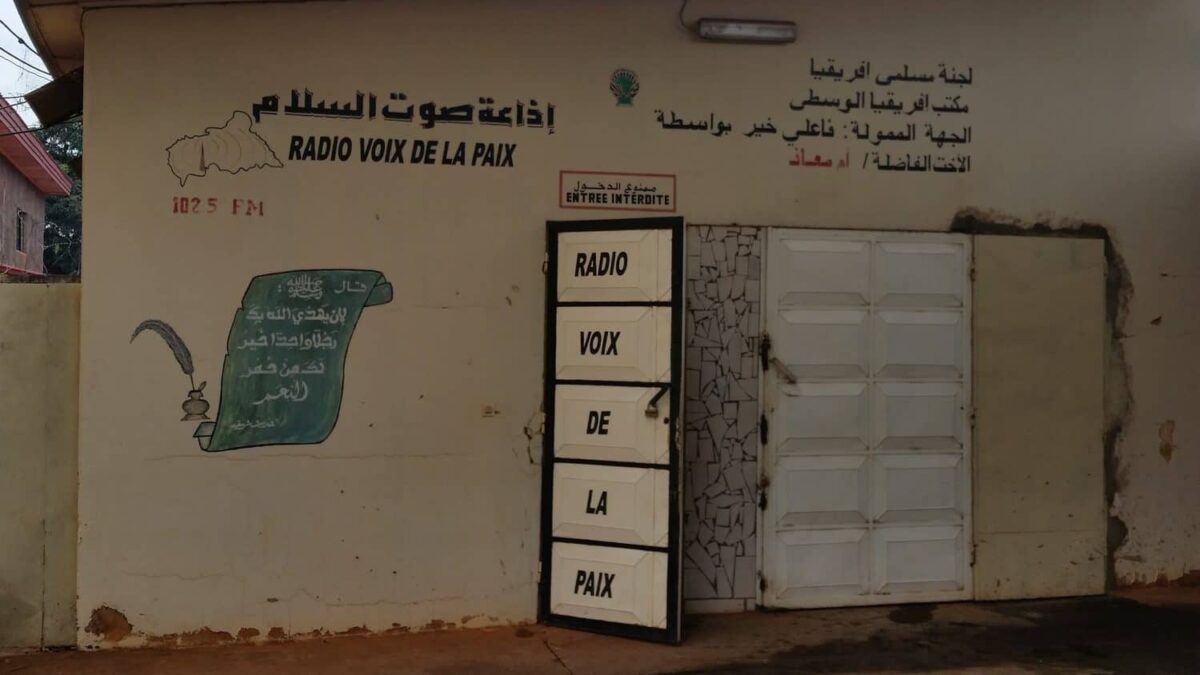
Internews and the Bangui-based Association of Journalists for Human Rights (AJHR) undertook this project to improve the two-way information flow between communities and humanitarian agencies. Specifically, the project strengthened communication within a network of community radio stations and produced a daily e-newsletter for humanitarian agencies.
Through this USIP-funded project, the project team added four new radio stations to the Network (in Mbaiki, Paoua, Bambari, and Boali), bringing the total number of stations to 15. The stations that comprise the Network of Community Radio Stations are located across the CAR, some in very remote areas that are not regularly covered in national media. To facilitate communication between regions and with humanitarian organizations based in the capital, AJHR staff called each of the stations every morning to gather their daily updates. The team then worked throughout the day to produce stories, which were shared through a daily e-bulletin with all participating stations and with a recipient list that had grown to more than 500 by the conclusion of the project. Among the recipients of the e-bulletin were more than 30 UN agencies and INGOs operating in the CAR, including UNICEF, UNDP, UNHCR, Mercy Corps, and the International Refugee Committee.
The project team also created up to four audio productions per week and sent these to the radio stations via mobile phone technology. During the USIP grant period, the Association placed more than 6,500 calls and produced more than 950 stories on a variety of topics, including health and conflict. As part of this project, Internews and AJHR provided Frontline SMS technology and related training to 11 of the community radio stations, which in turn solicited SMS contributions from their listeners.

This learning report summarizes the findings of the learning group that was formed by the three grantees of USIP’s 2011 Communication for Peacebuilding priority grant program.
IMPACT LESSONS LEARNED
- Technology scalability – After this pilot, the SMS system was expanded from 2 radio stations to all of the 15 radio stations part of the RJDH. While still in use, years after this pilot was ended, the SMS system is a very small part of the information system that the radio stations use, mainly because of literacy issues, connectivity in country, and cost-benefits.
- Localization – The RJDH network, supported and expanded through this project, remained over the years and today an Internews partner.
- Adaptive programming – The Mobile2Radio project lessons learned were then used to inform the design (and to test) the crisis-mapping project.
- Sustainability – The Humanitarian Community in CAR still receives on a weekly basis the RJDH weekly update set up with this project.